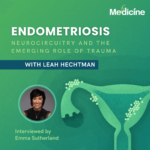
Sometimes, a little helping hand is needed to achieve the dream of having a baby. Finding out that either you or your partner is infertile, or sub-fertile, can be a traumatic experience. One or both of you may experience feelings of blame, anger, denial, guilt, self-pity or jealously, which often places stress on your relationship. These feelings are common and Leah is here to support you on your journey.
Leah is cognisant of your aspirations to conceive your child; she aims to help you on this journey both physically, emotionally, and mentally and will continue provide the best care for you and your partner throughout this time.
Statistics
At some point in their lives, one in six couples in Australia will experience infertility
- 40% of cases are due to concerns with the male
- 40% of cases are due to concerns with the female
- 10% of cases, are due to concerns with both partners
- In a further 10%, the cause is unknown
Calculating fertility
At some point, couples often ask themselves ‘Why me?’ Infertility is not like other conditions. If you have been diagnosed infertile or sub-fertile you are actually better off with a diagnosis of pathology as it is something obvious to treat. All too often, couples are diagnosed as ‘unexplained infertility’. This diagnosis is often harder to accept, as there appears to be no cause or reason for a couple’s lack of conception. These types of unexplained infertility are well suited to natural approaches to treatment as they encourage the body’s innate healing ability.
At The Natural Health and Fertility Centre we consider your fertility of prime importance and incorporate a number of considerations when determining our treatment approach:
- Duration of infertility
- Time left for conception (how old you and your partner are)
- Severity of treatable ill-health/pathology
- Individual factors
As such, throughout our programs we will refer you for a number of tests and assessments to accurately determine the cause of your sub- or in-fertility. Reasons may be as simple as a nutritional deficiency or as detailed as an immune irregularity. Regardless, we will help you find the answers and recommend supportive treatment strategies to help you reach your fertility aspirations.
The arithmetic of a couple’s fecundity is calculated to determine the monthly chance a couple has of conceiving a child. It factors in a number of variables and considerations for both the male and female partner. A common presentation is a couple who each experience minor health concerns but when combined present with major influences to successful fertility outcomes.
For example:
- The female has multiple minor fertility concerns (irregular cycles, weight gain, sugar imbalances, diagnosis of PCOS), digestive disturbances affecting her nutrient absorption, multiple nutrient deficiencies and other general health complaints.
- The male has sub-normal semen analysis results, sleep irregularities, strong family history of cardiovascular disease (presents with pre-cardiovascular disease concerns) and asthma.
The combination of all of these minor abnormalities can be best summarised by the following table:
| Number of factors | Average monthly fecundity | Pregnant in 2 yrs | Pregnant in 3 yrs | Average time needed to pregnancy |
| 0 | 20% | 94% | 97% | 3 months |
| 1 | 5% | 64% | 76% | 2 years |
| 2 | 1% | 21% | 29% | 7 years |
| 3 | 0.2% | 5% | 7% | 40 years |
What is the solution?
The best solution for couples is to receive supportive treatments for each of their minor fertility and health concerns so that they can improve their fecundity scores. It takes 100 days for the final stages of egg development and 72-76 days for the final stages of sperm development. As such, if you address health concerns (including nutritional deficiencies) you can expect to remedy most health concerns or at least reduce their negative impact on fertile health parameters within this time period. The body best responds when it can go through a process known as ‘repletion’. This process enables rectification of irregularities by addressing key imbalances of various nutritional pathways in the body. It is important to remember that nutrients are the building blocks of the body so any pathway will require nutrients to initiate, maintain and complete a reaction in the body.
Treatment Options
Supportive treatments for both partners as indicated include:
- Naturopathy incorporating Nutritional Medicine (supplemental and dietary), Herbal Medicine and others
- Other treatments specific to your individual needs



